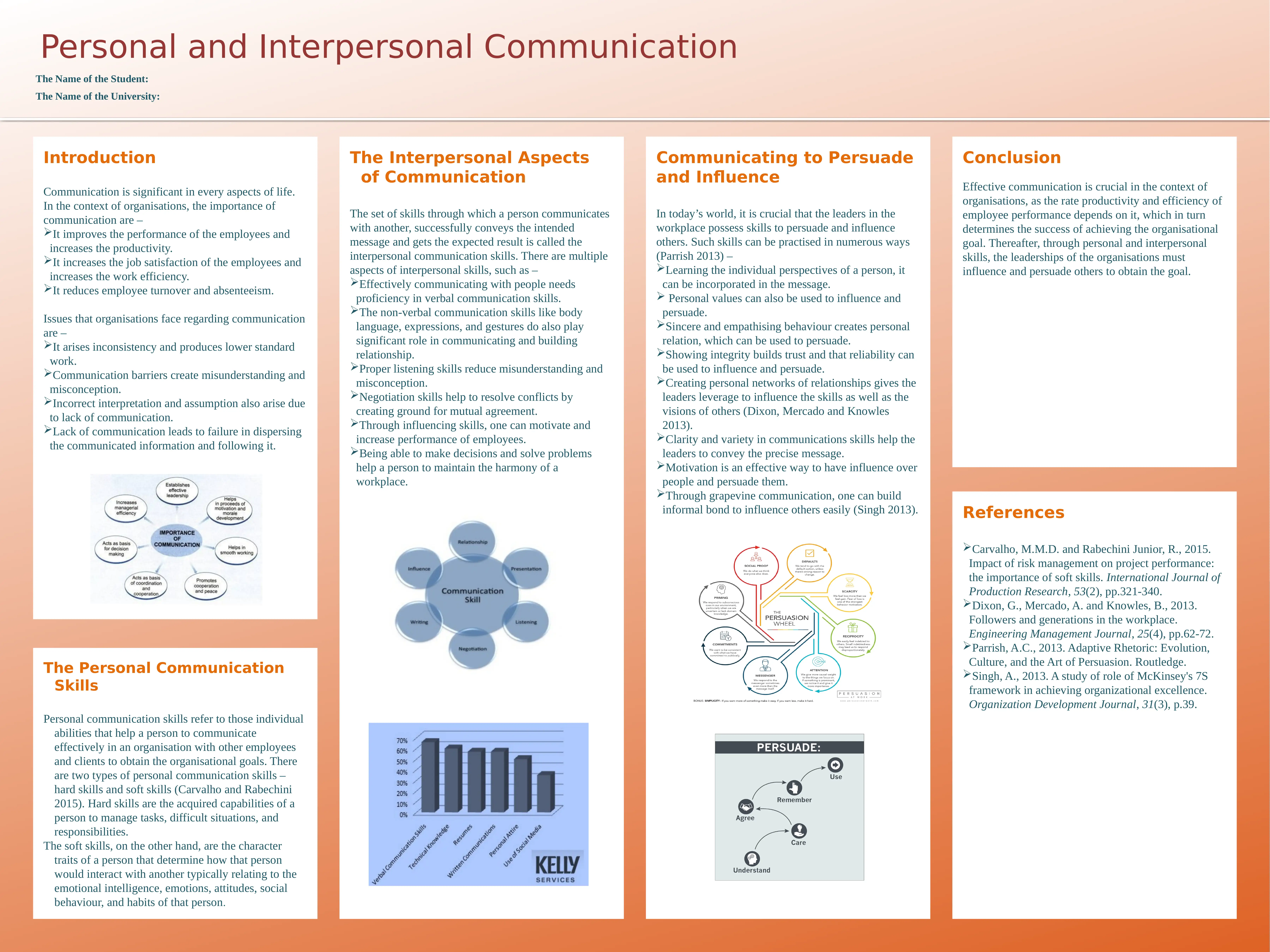Analyzing Personal and Interpersonal Communication in Organizations
VerifiedAdded on 2023/06/05
|1
|730
|453
Essay
AI Summary
This essay discusses the significance of personal and interpersonal communication skills within organizations, highlighting their impact on employee performance, job satisfaction, and overall productivity. It differentiates between hard and soft skills, emphasizing the role of emotional intelligence and social behavior in effective communication. The essay further explores various aspects of interpersonal communication, such as verbal and non-verbal communication, listening, negotiation, and influencing skills. It also addresses how leaders can utilize persuasion and influence to motivate employees and achieve organizational goals through strategies like understanding individual perspectives, building trust, and fostering clear communication. The conclusion underscores the importance of effective communication in achieving organizational success and the role of leadership in influencing and persuading others.





![[object Object]](/_next/static/media/star-bottom.7253800d.svg)